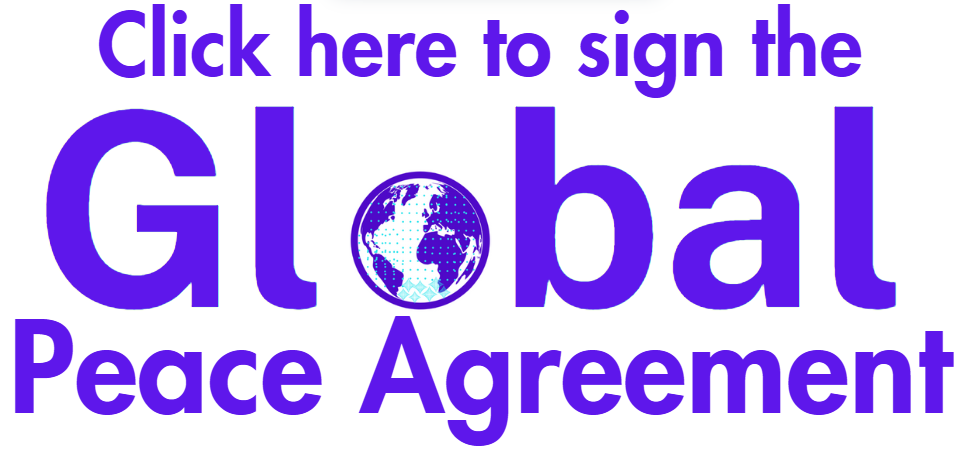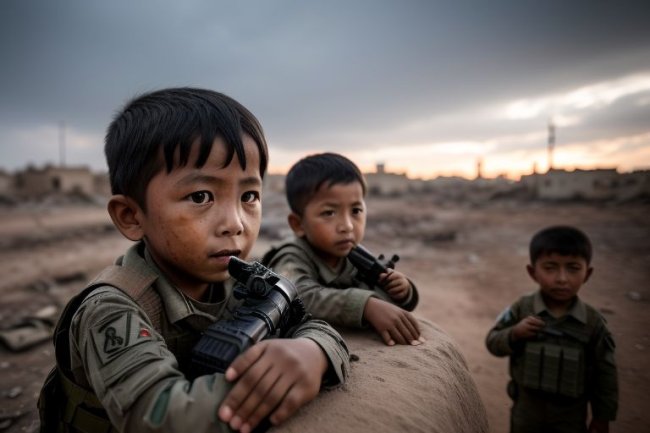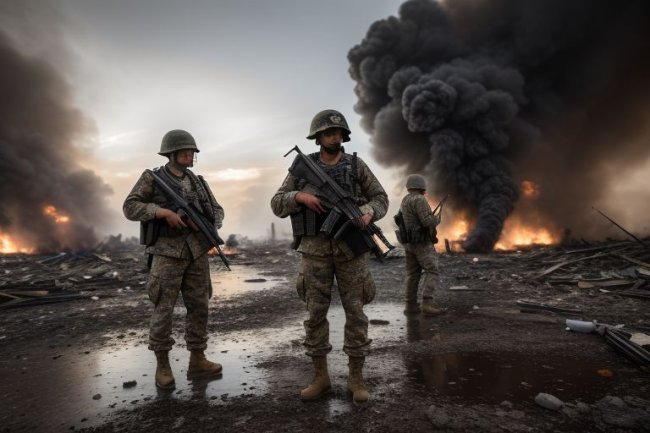Weaknesses of the Existing Rules of War
War has been an unfortunate and recurring element of human history, shaping civilizations, redrawing borders, and leaving indelible scars on countless lives. As societies have evolved, so too have the rules that govern the conduct of armed conflicts. Yet, despite the progress made in establishing international frameworks to regulate warfare, the weaknesses inherent in these existing rules have become increasingly evident.

From the ancient codes of conduct etched on clay tablets to the Geneva Conventions that emerged after World War II, the international community has strived to establish norms to limit the brutality and suffering inflicted during conflicts. These rules, known as International Humanitarian Law (IHL), encompass principles such as proportionality, the distinction between combatants and civilians, and the prohibition of certain weapons and tactics. While IHL represents a significant step forward, it remains plagued by various weaknesses that undermine its effectiveness in modern warfare.
The weaknesses inherent in the existing rules of war jeopardize the core objectives of protecting civilians, mitigating suffering, and upholding the principles of justice and accountability. The lack of effective enforcement mechanisms, the struggle to adapt to evolving technologies, and the challenges posed by non-state actors all necessitate a critical examination of IHL and a renewed commitment to its evolution. In the subsequent sections, we will explore these weaknesses in greater detail, shedding light on the urgent need for reform and offering potential avenues for enhancing the efficacy of the rules of war in our complex and ever-changing world.
In this chapter, we will delve into the deficiencies of the current rules of war, uncovering their challenges and the pressing need for comprehensive reform.
Limitations Of International Frameworks Governing War
International frameworks governing war play a crucial role in promoting peace, ensuring human rights, and regulating the conduct of armed conflicts. These frameworks, including international humanitarian law, human rights law, and disarmament treaties, are designed to minimize the suffering caused by war and protect civilians and combatants alike. However, despite their importance, these frameworks have limitations that challenge their effectiveness and implementation. T
Let us look at the limitations of international frameworks governing war, examining their complexities, gaps, and areas for improvement.
· Complexity and Evolving Nature of Armed Conflicts
Armed conflicts in the modern world have become increasingly complex, presenting a significant limitation to the effectiveness of international war frameworks. These frameworks were primarily designed with the understanding that conflicts would predominantly involve states engaging in traditional forms of warfare. However, the reality is far more intricate, with conflicts now involving various actors, tactics, and motivations.
Non-state actors, such as rebel groups, terrorist organizations, and militias, play a prominent role in many conflicts. Their objectives, strategies, and structures differ greatly from traditional state forces, challenging the assumptions and approaches embedded in existing frameworks. Asymmetric warfare, where one side possesses significantly more power and resources than the other, has also become prevalent. This presents a unique set of challenges in ensuring a fair and balanced approach to conflict resolution and protection of civilian populations.
The blurring of lines between military and civilian spheres further complicates the dynamics of armed conflicts. Combatants may often operate within civilian populations, using them as shields or blending in with non-combatants. This presents a moral and operational dilemma, as international frameworks strive to protect civilians from harm while enabling military operations to target legitimate military objectives. Striking the right balance in such situations requires nuanced and context-specific decision-making, which the existing frameworks may struggle to provide.
Additionally, the evolving nature of technology and warfare challenges international frameworks. The rapid advancement of weaponry, unmanned systems, and cyber capabilities has opened up new frontiers in warfare. These advancements have far-reaching implications, including the potential for increased civilian casualties, privacy infringements, and cyber-attacks. The frameworks must adapt to regulate and mitigate the risks associated with these emerging technologies, ensuring that ethical and legal considerations keep pace with the evolving nature of conflict.
Addressing the limitations of armed conflicts' complexity and evolving nature requires innovative thinking and a willingness to adapt. International organizations, governments, and civil society must engage in ongoing dialogue and collaboration to enhance the existing frameworks and develop new approaches where necessary. This may involve revisiting and updating international treaties, protocols, and guidelines to reflect the realities of modern conflicts better. It also necessitates a deeper understanding of these conflicts' root causes and dynamics, enabling more targeted and effective interventions.
Ultimately, recognizing and addressing the limitations of armed conflicts' complexity and evolving nature is crucial for advancing international frameworks governing war. By doing so, we can ensure that these frameworks remain relevant, effective, and capable of addressing the diverse challenges posed by contemporary conflicts. We can strive for a more peaceful and just world through continuous adaptation and innovation.
- Compliance and Enforcement Challenges
Compliance and enforcement challenges pose significant limitations to the effectiveness of international frameworks governing war. While these frameworks establish clear rules and regulations, ensuring compliance with them is often complex and multifaceted. Some states may choose to disregard certain provisions or selectively implement them, undermining the overall effectiveness of the frameworks and eroding trust in the international system.
One of the primary challenges is the absence of a strong enforcement mechanism. While international law establishes the legal obligations of states, there is no supranational authority with the power to enforce compliance. This places the burden of enforcement on individual states and the international community. However, enforcing compliance can be politically challenging, particularly in cases where powerful states may have conflicting interests or choose to prioritize their national security concerns.
Another compliance challenge arises from the varying interpretations and understandings of international law among states. The lack of a unified understanding can lead to divergent implementation and inconsistent compliance. States may interpret certain provisions to serve their interests, creating discrepancies in adherence to the frameworks.
Moreover, the complexity and dynamics of armed conflicts present challenges to compliance. In intense conflict, ensuring strict adherence to legal norms and obligations can be difficult. The fog of war, resource constraints, and rapidly changing circumstances may lead to inadvertent violations or deviations from established rules. Additionally, the involvement of non-state actors, who international legal frameworks may not bind, further complicates compliance efforts.
Another major issue is the lack of responsibility for transgressions of international law during wars.
While international courts and tribunals exist to address war crimes and human rights abuses, their jurisdiction and reach may be limited. Political considerations, power imbalances, and challenges in gathering evidence can hinder the prosecution of perpetrators and the delivery of justice to victims.
Addressing compliance and enforcement challenges requires a comprehensive and multifaceted approach. Strengthening the accountability mechanisms and ensuring the availability of robust enforcement mechanisms can act as deterrents and promote compliance. This may involve enhancing the capacity and jurisdiction of international courts, increasing cooperation between states in investigating and prosecuting war crimes, and providing adequate resources and support for these efforts.
Promoting a culture of accountability and respect for international law is also crucial. This can be achieved through awareness-raising campaigns, capacity-building initiatives, and education programs emphasizing the importance of compliance with international norms and the consequences of violations. Strengthening international cooperation and collaboration in monitoring, reporting, and documenting violations can also improve enforcement.
Compliance and enforcement challenges significantly limit the effectiveness of international frameworks governing war. Overcoming these limitations requires a concerted effort by states, international organizations, and civil societies to strengthen enforcement mechanisms, enhance accountability, and promote a culture of compliance with international law. By addressing these challenges, we can create a more just and peaceful world where the rules governing armed conflicts are upheld, and violations are met with appropriate consequences.
- State Sovereignty and National Security Considerations
State sovereignty and national security considerations significantly challenge the effectiveness of international frameworks governing war. The principle of state sovereignty grants states the authority to govern their territories and make decisions for their security. While this principle is essential for maintaining the stability of the international system, it can also limit the willingness of states to comply with international legal obligations in times of conflict fully.
National security concerns often take precedence over international law, as states prioritize the protection of their territory, citizens, and strategic interests. This can lead to reluctance to fully adhere to the provisions of international frameworks, particularly if states believe that compliance may compromise their national security. In such situations, states may employ justifications, such as self-defense or national interest, to circumvent their obligations or interpret international law that aligns with their perceived security imperatives.
The tension between state sovereignty and international legal obligations is especially pronounced in cases where states perceive external interventions or interference as a threat to their sovereignty. The fear of external influence can lead to a defensive stance, causing states to resist international pressure or oversight, even when their actions violate established norms and principles.
Moreover, national security considerations can shape the interpretation and implementation of international law. States may interpret legal provisions favoring their national security interests, potentially leading to divergent understandings and inconsistent compliance. This can undermine the uniform application of international law and create challenges in achieving a cohesive and comprehensive approach to conflict resolution.
Addressing the limitations of state sovereignty and national security considerations requires striking a delicate balance between preserving state sovereignty and promoting international norms and obligations. Recognizing the legitimate security concerns of states is crucial, but it must be done within the framework of international law and with respect for human rights. Efforts should be made to foster a dialogue that reconciles the need for national security with the imperative of upholding international legal principles.
Engaging states in constructive dialogue and highlighting the long-term benefits of compliance with international law can help mitigate the tensions between state sovereignty and international frameworks. Emphasizing the collective security and shared interests of states can encourage a more cooperative approach to conflict resolution. Additionally, providing states with the necessary resources, support, and capacity-building opportunities can assist them in meeting their security needs while adhering to their international legal obligations.
Furthermore, international cooperation and collaboration are essential in addressing the challenges posed by state sovereignty and national security considerations. Encouraging dialogue, building trust, and fostering mutual understanding among states can create an environment conducive to the peaceful resolution of conflicts. Strengthening regional and international mechanisms for conflict prevention and resolution can also provide platforms for addressing the security concerns of states while upholding international legal norms.
State sovereignty and national security considerations challenge the effectiveness of international frameworks governing war. Striking a balance between state sovereignty and international legal obligations is crucial for maintaining stability and promoting compliance with international law. By fostering constructive dialogue, promoting international cooperation, and addressing the legitimate security concerns of states, we can work towards a more harmonious and effective international framework for preventing and resolving conflicts.
- Limited Scope and Ambiguity in Legal Interpretations
Limited scope and ambiguity in legal interpretations of international frameworks governing war present significant challenges to their effective implementation. These challenges arise from the diverse perspectives and interpretations that states and legal scholars bring to understand key concepts and provisions within the frameworks.
One of the main areas of contention is the interpretation of terms such as proportionality and military necessity. Proportionality requires that the harm caused by military action is not excessive in relation to the anticipated military advantage. However, determining what is considered "excessive" or "anticipated military advantage" can vary depending on the context and the parties' interpretation. This ambiguity can create differing interpretations and standards of assessment, leading to inconsistent application of the law and potential violations.
Similarly, the concept of military necessity, which allows for using force in necessary situations to achieve a legitimate military objective, can be subject to varying interpretations. Understanding what constitutes a legitimate military objective can differ, impacting the interpretation of permissible actions during armed conflicts. The ambiguity surrounding these concepts can lead to differing legal opinions and sometimes result in actions that may stretch the boundaries of international legal norms.
Moreover, the limited scope of international legal frameworks governing war can challenge their effectiveness. Traditional frameworks were primarily designed to address state-to-state conflicts, but contemporary conflicts often involve non-state actors, asymmetric warfare, and blurred lines between military and civilian spheres. The existing frameworks struggle to adapt to these changing dynamics, leaving gaps in addressing the unique challenges posed by modern conflicts.
The evolving nature of warfare, such as using new technologies and tactics, further adds to the complexity of legal interpretations. Determining the applicability and interpretation of existing legal frameworks to emerging technologies, such as cyber warfare or autonomous weapons systems, can be challenging. These advancements may require additional legal frameworks or the reinterpretation and adaptation of existing ones to ensure they remain relevant and effective.
To address these limitations, efforts should be made to enhance clarity and consensus in interpreting and applying international legal frameworks. Encouraging dialogue, sharing best practices, and fostering collaboration among states, legal experts, and international organizations can help promote a more consistent and comprehensive understanding of the law. Legal training and capacity-building initiatives can also play a vital role in improving the understanding and implementation of international legal norms.
Furthermore, engaging in ongoing discussions and evaluations is essential to identify gaps and areas for improvement in existing frameworks. Regular reviews and updates can ensure that the law remains responsive to evolving challenges and considers emerging technologies, non-state actors, and the changing nature of armed conflicts. This process requires the active participation and cooperation of states, legal experts, and international organizations to ensure that legal interpretations evolve and adapt to uphold the principles of justice, accountability, and the protection of human rights.
The limited scope and ambiguity in the legal interpretations of international frameworks governing war pose significant challenges to their successful implementation. Addressing these challenges requires enhancing clarity, consensus, and adaptability in interpreting and applying international legal norms. By promoting dialogue, sharing best practices, and undertaking regular reviews, we can work towards a more comprehensive and effective legal framework that upholds the principles of international humanitarian law and contributes to the prevention and resolution of armed conflicts.
- Technological Advancements and Cyber Warfare
Technological advancements have revolutionized how conflicts are waged, with cyber warfare emerging as a significant challenge to the existing international frameworks governing war. The rapid development of technologies, including drones, autonomous weapons systems, and cyber capabilities, has created new capabilities and threats that traditional legal frameworks struggle to address effectively.
Cyber warfare, in particular, presents unique challenges due to its intangible nature and the speed at which attacks can be launched and spread. Unlike traditional warfare, where physical actions and consequences are more easily observable and regulated, cyber-attacks can be conducted remotely, anonymously, and with minimal attribution. This poses challenges in identifying and holding responsible actors accountable for their actions.
The lack of clear guidelines and norms surrounding cyber warfare raises concerns about the potential misuse and unintended consequences of emerging technologies in armed conflicts. Existing international frameworks were primarily designed to address physical aggression between states, and they do not comprehensively cover the complexities of cyber warfare. As a result, there is a need to develop new legal frameworks and norms that specifically address cyber operations, their regulation, and the protection of critical infrastructure and civilians in the cyber domain.
The challenges posed by technological advancements extend beyond cyber warfare. Using drones and autonomous weapons systems raises questions about accountability, proportionality, and the ethical considerations surrounding their deployment. These technologies can potentially change warfare dynamics, but clear regulations must govern their use to prevent unintended harm and minimize civilian casualties.
Addressing these challenges requires international cooperation and dialogue to develop norms and regulations that keep pace with technological advancements. It is crucial to involve states, legal experts, and technology specialists in these discussions to ensure a comprehensive and balanced approach to governing emerging technologies in armed conflicts.
In addition to legal frameworks, there is a need for increased transparency, information sharing, and confidence-building measures among states to reduce the risks associated with technological advancements. Confidence-building measures can help foster trust and cooperation, enhance mutual understanding of capabilities and intentions, and reduce potential misunderstandings or miscalculations that could escalate conflicts.
Moreover, efforts should be made to raise awareness and promote responsible technology use during armed conflicts. Education and training programs can ensure that military personnel, policymakers, and the wider public are well-informed about emerging technologies' implications and ethical considerations.
Technological advancements, including the rise of cyber warfare, present significant challenges not adequately addressed by existing international frameworks governing war. The evolving nature of technology calls for the development of new legal frameworks, norms, and confidence-building measures to ensure the responsible use of emerging technologies and minimize the risks they pose. International cooperation and dialogue are crucial to addressing these challenges and promoting the development of comprehensive and effective regulations that align with the evolving nature of warfare in the digital age.
- Limited Participation and Representation
Limited participation and representation of certain actors in developing and implementing international frameworks governing war can significantly undermine their effectiveness. Traditionally, decision-making processes and negotiations have been monopolized by powerful states, marginalizing the voices of marginalized communities, non-state actors, and civil society organizations. His exclusive strategy falls short of capturing the variety of viewpoints and experiences of individuals who are directly impacted by armed conflicts.
The limited participation of key stakeholders in developing international frameworks can lead to a lack of legitimacy and a skewed representation of interests. It may result in frameworks that do not adequately address the root causes of conflicts, fail to address the needs and concerns of marginalized communities, and neglect the perspectives of those working at the grassroots level to promote peace and reconciliation.
Excluding non-state actors and civil society organizations from the negotiation table overlooks the valuable knowledge and expertise they possess. These actors often deeply understand local dynamics, and their participation can contribute to more comprehensive and context-specific solutions. Their inclusion ensures that the voices of affected communities are heard, their needs are taken into account, and the solutions proposed are sustainable and inclusive.
To overcome this limitation, there is a need for more inclusive and participatory approaches in the development and implementation of international frameworks governing war. This involves creating spaces for dialogue and collaboration that bring together diverse actors, including states, non-state actors, civil society organizations, and local communities. By fostering inclusive processes, decision-making can become more representative, transparent, and accountable.
Inclusivity can be promoted through initiatives prioritizing the participation of marginalized communities, women, youth, and other underrepresented groups. It also requires building bridges between local actors and international institutions, ensuring their knowledge and expertise are integrated into policy discussions and decision-making processes.
International frameworks can benefit from a wider range of perspectives, insights, and solutions by expanding participation and representation. This inclusive approach promotes ownership, legitimacy, and effectiveness in addressing the complex challenges of armed conflicts. It also fosters a sense of empowerment among marginalized communities, strengthening their resilience and agency in pursuing peace and justice.
Limited participation and representation of certain actors in developing and implementing international frameworks governing war present significant limitations to their effectiveness. To overcome this challenge, inclusive and participatory approaches must be embraced, ensuring that the voices of marginalized communities, non-state actors, and civil society organizations are heard and integrated into decision-making processes. By expanding participation and representation, international frameworks can become more comprehensive, responsive, and sustainable in addressing the complexities of armed conflicts.
- Challenges in Addressing Root Causes and Prevention
Challenges arise when international frameworks governing war focus primarily on regulating the conduct of armed conflicts rather than addressing their root causes and preventing their escalation. Conflicts are often deeply rooted in socio-political, economic, and cultural factors that require comprehensive and long-term solutions. The existing frameworks, however, prioritize managing conflicts in the short term, neglecting the underlying causes and thus limiting their effectiveness in preventing future conflicts.
Addressing the root causes of conflicts is crucial for sustainable peace-building and prevention efforts. It involves understanding and tackling inequality, poverty, political instability, ethnic tensions, and resource disputes. These factors are interconnected and require a holistic approach beyond immediate ceasefire agreements and focusing on structural transformation and societal change.
One of the challenges in addressing root causes is the complexity and interplay of various factors. Conflict situations are dynamic and multifaceted, making it difficult to comprehensively identify and address all the underlying causes. It requires a deep understanding of the local context, historical grievances, and power dynamics, which can vary significantly from one conflict to another.
Another challenge is the limited capacity and resources available for preventive efforts. Preventing conflicts requires long-term investments in peace-building, development, and social justice initiatives. However, funding for prevention often takes a back seat to address immediate humanitarian needs or military interventions. This lack of sustained investment hinders the implementation of comprehensive preventive strategies.
Furthermore, the engagement and cooperation of all relevant stakeholders are crucial in addressing root causes and preventing conflicts. This includes governments, civil society organizations, local communities, and international actors. Building trust, fostering dialogue, and promoting inclusive decision-making is key to bringing diverse perspectives together and developing shared solutions.
To overcome these challenges, a shift in mindset and approach is necessary. International frameworks must go beyond crisis management and prioritize conflict prevention as a central component. This involves addressing the root causes of conflicts through investments in education, economic development, good governance, and social inclusion. It also requires a coordinated and integrated approach that brings together diverse actors and resources.
Ultimately, by focusing on prevention and addressing the root causes of conflicts, international frameworks can build more resilient societies and reduce the likelihood of future conflicts. This proactive and comprehensive approach is essential for creating a more peaceful and just world.
- Inadequate Resources and Capacities
The inadequate allocation of resources and capacities poses a significant challenge to effectively implementing international frameworks governing war. Many states, especially those directly affected by conflicts or facing resource constraints, find it difficult to fulfill their obligations and provide the necessary support for compliance with these frameworks.
Financial constraints often hinder states from investing in the infrastructure, training, and personnel needed to implement and enforce international frameworks effectively. Insufficient funds limit the ability to strengthen institutions, conduct necessary research, and establish mechanisms for monitoring and reporting violations. This lack of financial resources can undermine the effectiveness and credibility of the frameworks as states struggle to meet their obligations.
Human resources also play a critical role in implementing and enforcing international frameworks. However, many states face challenges in recruiting and retaining qualified personnel with the necessary expertise in international law, conflict resolution, and human rights areas. The limited availability of skilled professionals can impede the implementation of the frameworks and undermine efforts to address violations and assist affected populations.
Additionally, competing priorities within states can divert attention and resources from implementing international frameworks. States often face numerous pressing issues, such as economic development, public health, and security concerns, which may take precedence over allocating resources for compliance with the frameworks. As a result, the implementation efforts may be fragmented, inconsistent, or insufficiently prioritized.
International cooperation and support are crucial to address the challenge of inadequate resources and capacities. In order to help states achieve their duties, donor nations, international organizations, and civil society may play a crucial role in providing funding, technical assistance, and capacity-building programs. Collaboration and knowledge sharing among states can also help overcome resource limitations by pooling resources, sharing best practices, and promoting collective action.
Moreover, efforts to address the inadequate resources and capacities should focus on long-term sustainability. Building domestic capacities, investing in education and training programs, and strengthening institutional frameworks are essential for ensuring self-reliance and continued compliance with international frameworks. This requires a comprehensive approach that considers each state's specific needs and contexts, as well as the ongoing support and engagement of the international community.
The limitations of international frameworks governing war highlight the challenges in addressing the complexities of armed conflicts, ensuring compliance, and preventing violations of human rights and humanitarian law. While these limitations pose significant obstacles, they also present opportunities for improvement and innovation. Strengthening compliance mechanisms, enhancing accountability, addressing the evolving nature of armed conflicts, promoting meaningful participation, and addressing root causes are crucial steps toward creating more effective and comprehensive frameworks. By continuously evaluating and adapting international frameworks, we can strive for a more just and peaceful world where the suffering caused by war is minimized, and human rights and dignity are protected.
The Ethical Dilemma Of Just War Theory
War has been a perennial presence throughout human history, and its ethical considerations have sparked ongoing debates. Just war theory is a framework that seeks to provide ethical guidelines for engaging in armed conflict. However, this theory is not without its ethical dilemmas.
The foundations of just war theory can be traced back to ancient philosophical and religious traditions. Scholars such as Cicero, St. Augustine, and St. Thomas Aquinas contributed to developing this ethical framework, which seeks to reconcile the tension between the desire for peace and the recognition of the need for self-defense and protecting innocent lives. Just war theory consists of several principles that guide the moral evaluation of war. Each of these principles presents its ethical challenges when applied to real-world conflicts.
The principle of just cause states that war is morally justifiable only when there is a legitimate reason for resorting to force. However, determining what constitutes a just cause can be subjective and contentious. Balancing legitimate self-defense, protecting innocent lives, and pursuing national interests can be ethically complex, as competing interpretations of just cause may arise.
According to the concept of proportionality, the anticipated advantages of military action must balance the anticipated costs, including civilian fatalities and devastation. The ethical dilemma lies in accurately assessing and predicting the consequences of war. In the chaos of armed conflict, it is challenging to determine the precise impact of military actions and weigh the potential harms against the desired outcomes.
The principle of discrimination emphasizes distinguishing between combatants and non-combatants, minimizing harm to civilians. Upholding this principle is challenging amid warfare, where the lines between combatants and civilians can become blurred. Balancing military objectives with the duty to protect non-combatants poses ethical dilemmas, particularly when non-state actors and guerrilla tactics are prevalent.
The principle of last resort asserts that war should be a last resort, pursued only when all peaceful means of resolving a conflict have been exhausted. The ethical dilemma lies in determining when all peaceful means have been exhausted and whether diplomatic efforts have been genuinely pursued to their fullest extent. Additionally, the concept of last resort raises questions about the use of preemptive strikes and the ethical implications of preventive war.
The principle of the prohibition on means of warfare prohibits using indiscriminate and excessive force and weapons that cause unnecessary suffering or disproportionately harm civilians. Technological advancements, such as drones and autonomous weapons systems, challenge the application of this principle. The ethical dilemma lies in determining the compatibility of modern warfare with the principles of just war theory and addressing the ethical implications of emerging technologies.
Applying just war theory to real-world conflicts is fraught with challenges. The nature of war itself, with its chaos, uncertainty, and moral ambiguities, poses difficulties in adhering to the principles of just war theory. The fog of war, the pressures of military necessity, and the involvement of non-state actors further complicate ethical decision-making.
Cultural and moral relativism can influence the interpretation and application of just war principles. Different cultures may have varying moral perspectives and understandings of what constitutes a just cause or proportionate response. Bridging these cultural differences and finding common ground in ethical war evaluations can be challenging.
The role of state sovereignty and national security considerations can create tensions between the principles of just war theory and the realities of political decision-making. States often prioritize their national interests and security over strict adherence to ethical principles, leading to ethical dilemmas and questions about the legitimacy of certain military actions.
The ethical dilemmas inherent in just war theory reflect the complexities of applying moral principles to the realities of armed conflict. While just war theory provides a framework for evaluating the morality of war, the challenges of determining just cause, ensuring proportionality, upholding discrimination, and navigating the complexities of modern warfare demand ongoing reflection and debate.
By recognizing these ethical dilemmas, we can engage in meaningful discussions about the ethical implications of armed conflict and work towards developing more comprehensive and nuanced frameworks for evaluating the morality of war. Ultimately, the goal is to minimize the harm and suffering caused by war and strive for a more peaceful and just world.




















